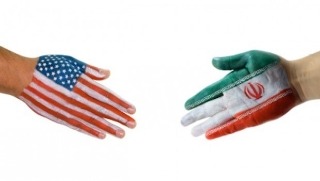“CACI Analyst, February 05, 2014”
Released Video Shows Georgia's Former Interior Minister Demanding Corpses
By Eka Janashia (the 05/02/2014 issue of the CACI Analyst)
On January 29, an anonymous YouTube user uploaded a 4-minute video featuring Georgia's former Minister of Internal Affairs, Vano Merabishvili, ordering his subordinates to bring him two corpses: “I want two men, two dead bodies, bring me two dead bodies. That’s it. Reward will be high.” The video shows the preparation for the special search operation to hunt down the escaped suspects of the 2009 Mukhrovani mutiny.
“CACI Analyst, January 22, 2014”
U.S.-Iranian Rapprochement: Implications for Azerbaijan
By Farhad Aliyev (the 22/01/2014 issue of the CACI Analyst)
The Geneva interim agreement in November, 2013, between six world powers and Iran on its disputed nuclear program could mark the start of one of the most significant transformations in the Middle East over the last decades, with ramifications across Eurasia. Azerbaijan, as one of Iran's neighbors and sharing certain religious, ethnic, and cultural commonalities with Iran, should be considered among the countries most influenced by the success of negotiations with Iran, even in terms of Azerbaijan's domestic development.

Georgia's National Currency Continues to Depreciate
By Eka Janashia (the 22/01/2014 issue of the CACI Analyst)
2013 saw a significant depreciation of the Georgian national currency Lari (GEL) compared to both the US$ and the Euro. From the beginning of last year until now, the Lari's exchange rate has dropped against the U.S. and EU currency by over 5 and 7 percent respectively. Georgia's Minister of Finance, Nodar Khaduri, Minister of Economy and Sustainable Development, Giorgi Kvirikashvili, and the President of the National Bank of Georgia (NBG), Giorgi Kadagidze, insist that there is no reason for panic. However, the steady and speedy depreciation of the Lari has already triggered undesirable expectations among consumers and the business sector.


